We were challenged with creating an information design piece, on the topic of the Canadian residential school history, or an aspect of current issues related. We were tasked with researching and developing an approach. Our position on the topic was based on target audience profiles and use case scenarios. Special considerations were given due to the sensitivity of the subject matter. Our project definition was left open for interpretation and exploration, as long as the end result effectively communicated our topic.
12/2020
Instructor: Marga Lopez
Award: RGD Pivot Information Design
Rationale
It was very important to me that this project encompassed the underlying systemic racism showcased by the residential schools, is still very much alive today. It uses photography and language that we're all accustomed to seeing everyday, and gives them a new perspective. Using relatable language and nostalgic imagery, this book re-contextualizes the epidemic of Indigenous child apprehension within the Covid-19 pandemic, and triggers connections to the childhood of the reader in contrast to the loss of youth written about in the book. Using language related to Covid-19 news headlines was intentional because it aims to convey the present day relevance of systemic racism. It does not attempt to compare the severity of one tragedy to the other.
PROJECT INFO
Topic: Indigenous child apprehension
Challenge: Use information design to convey the content
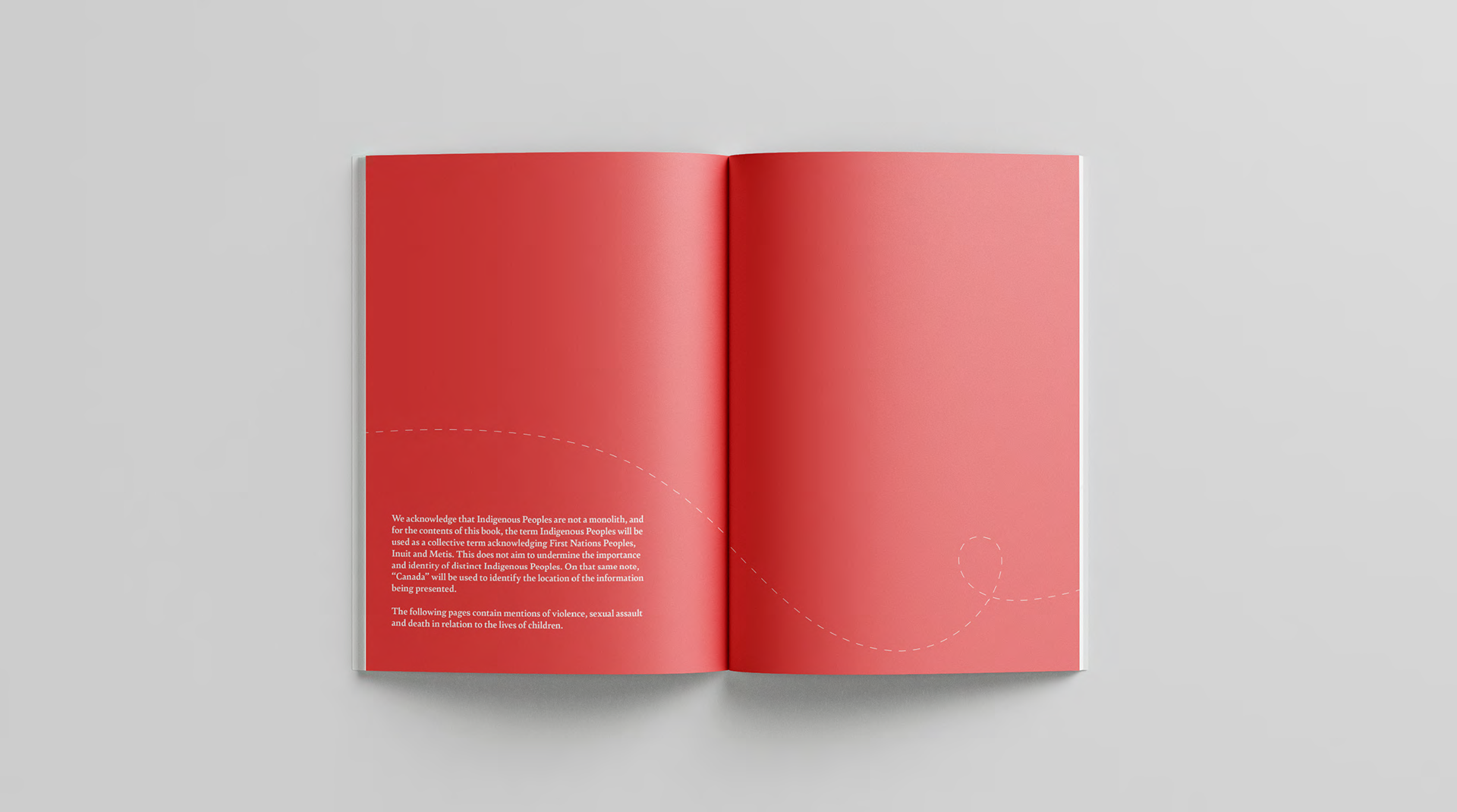
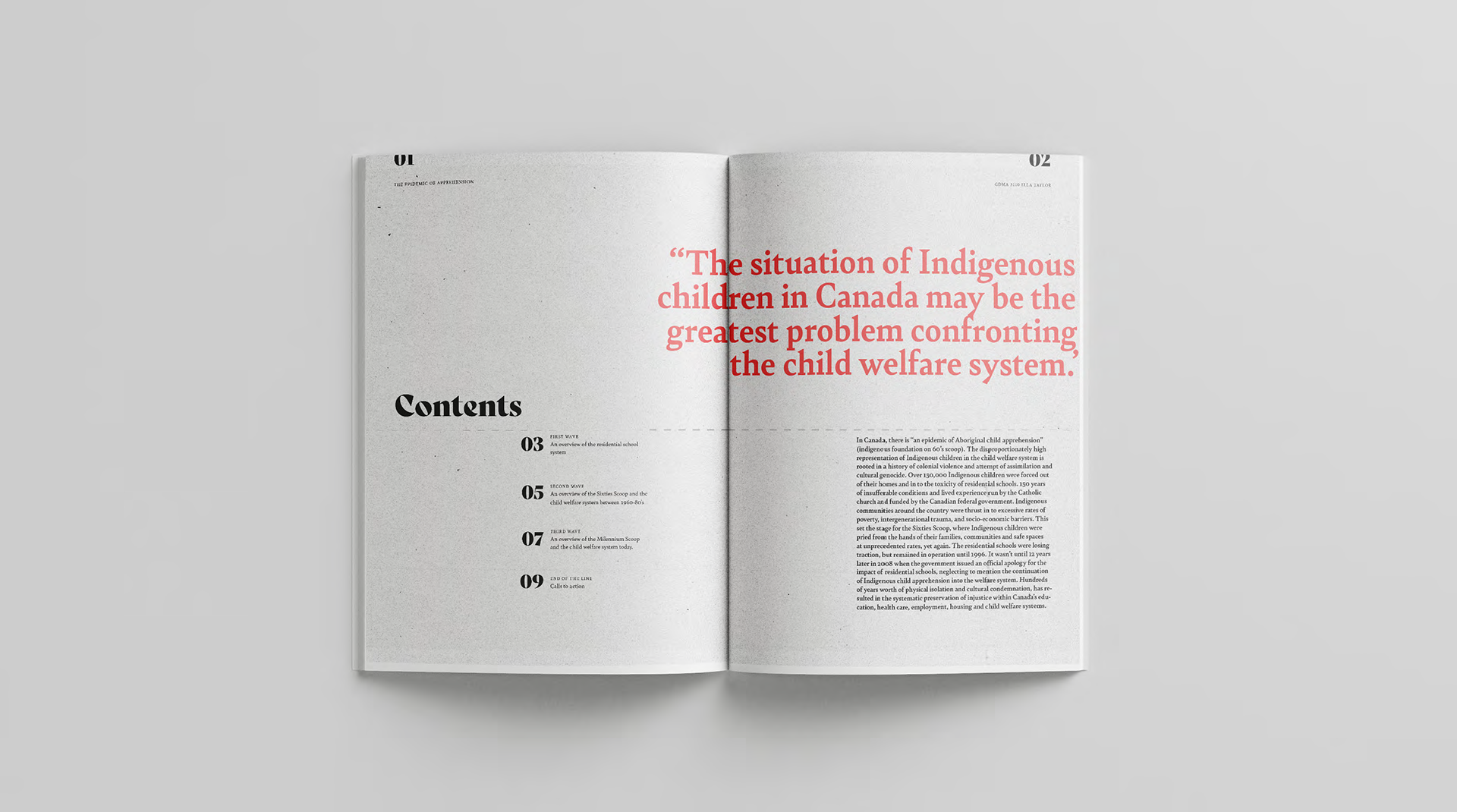
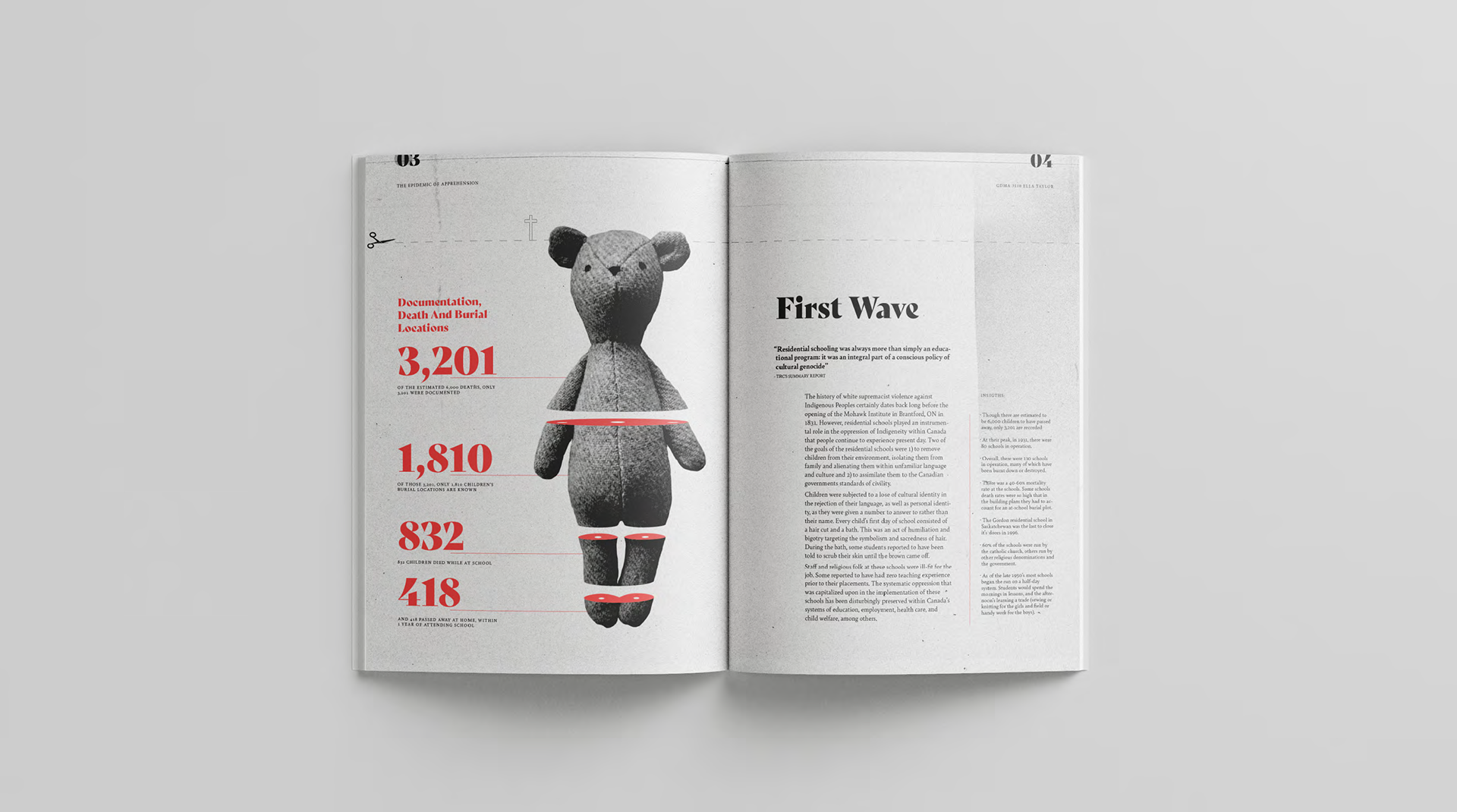
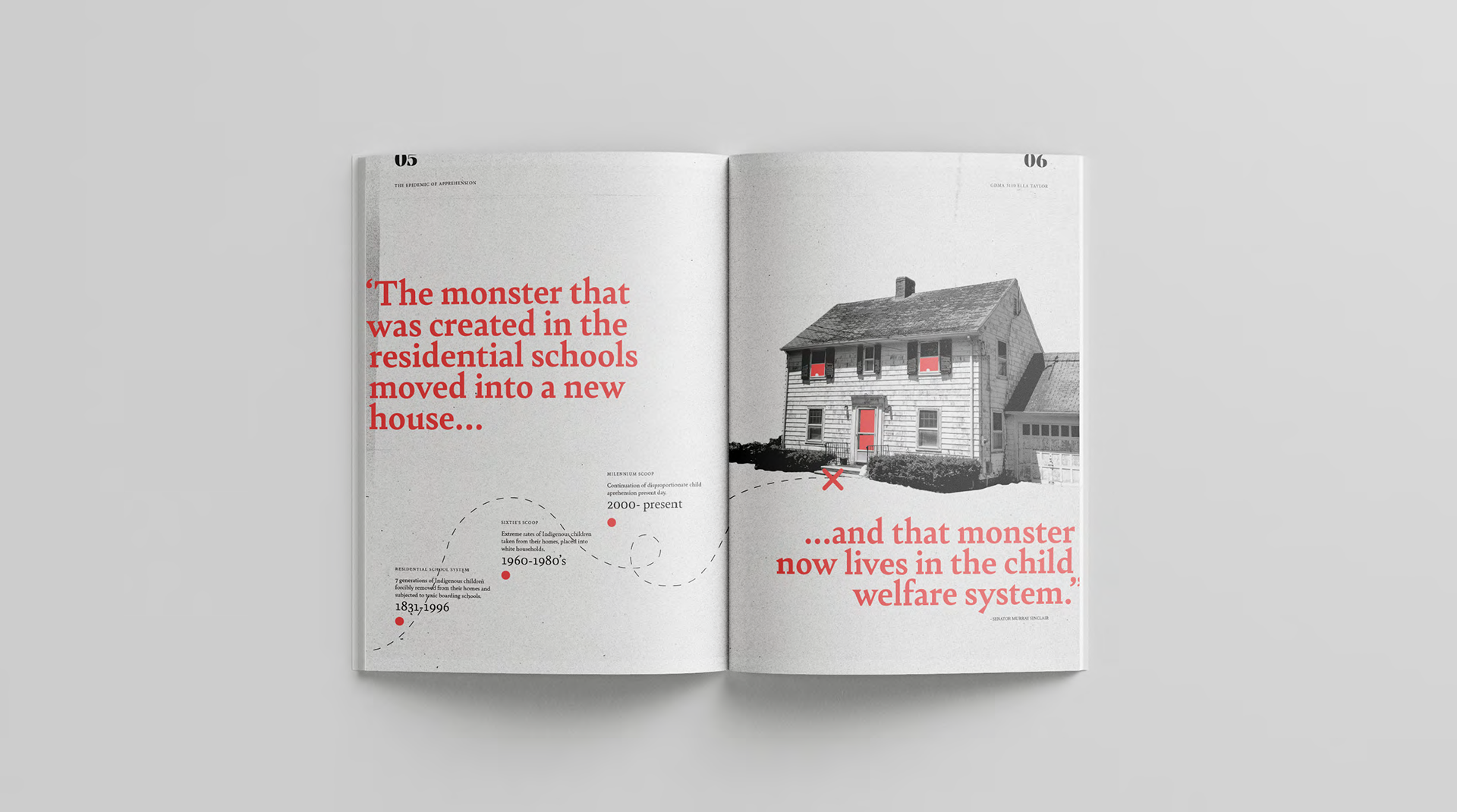
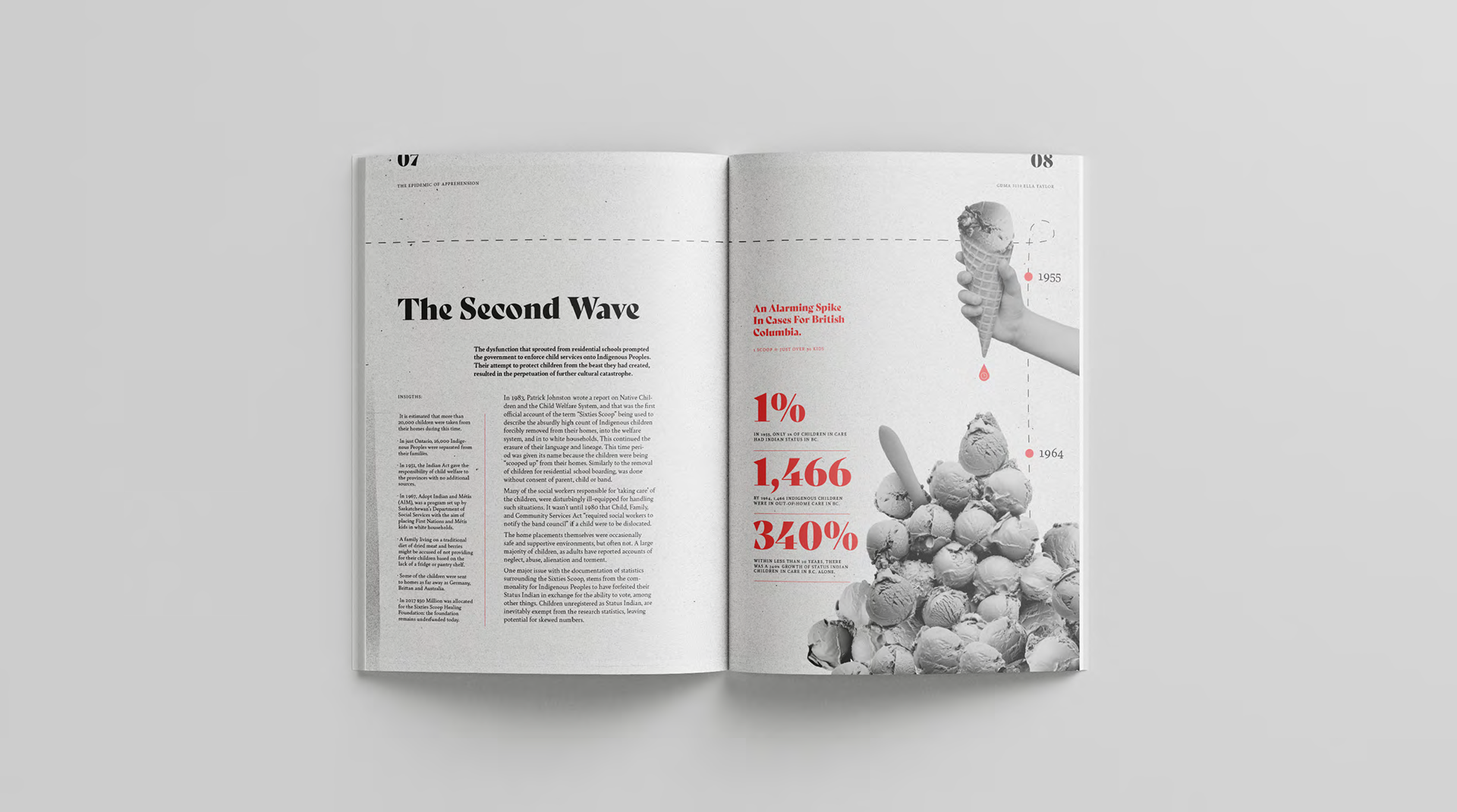
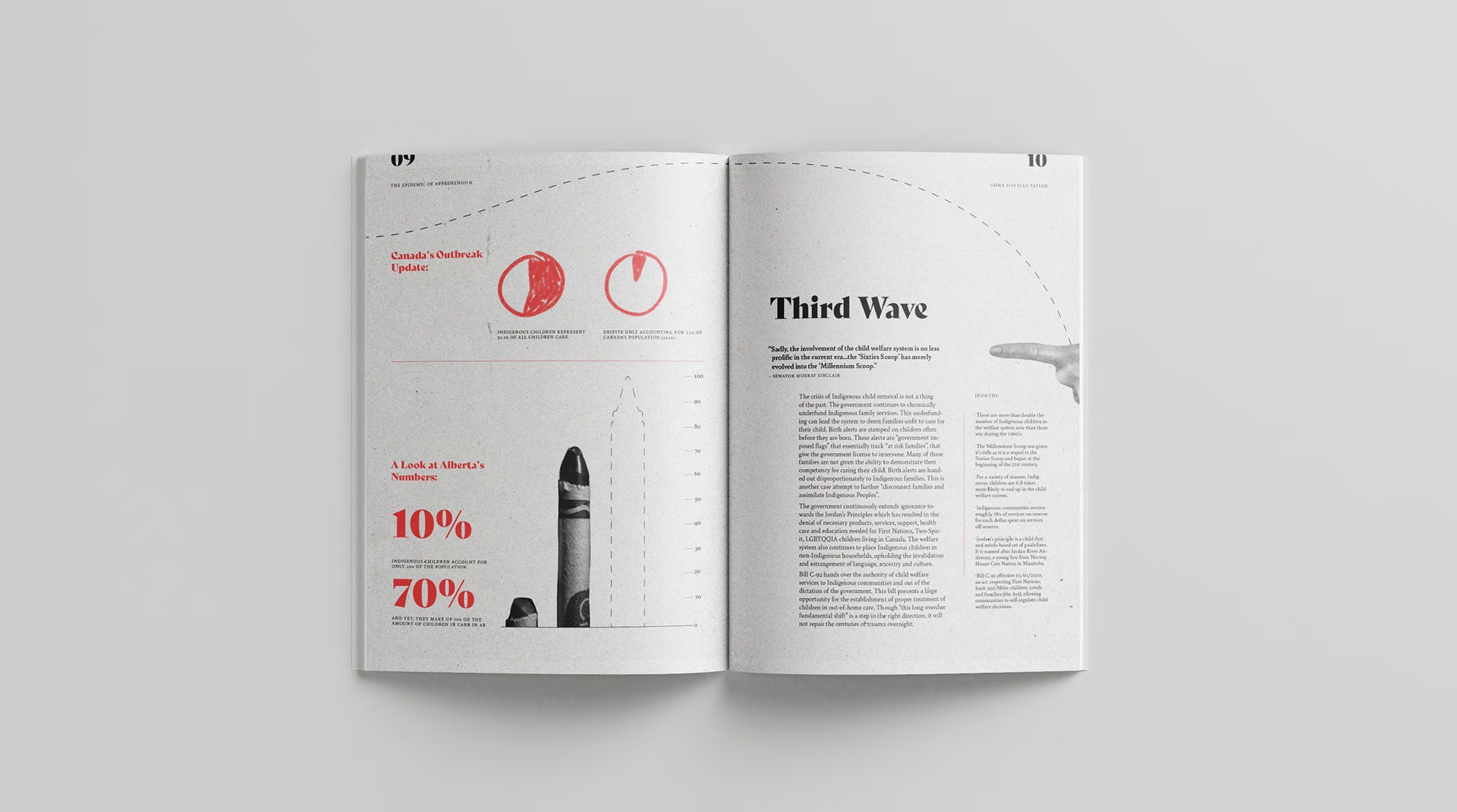
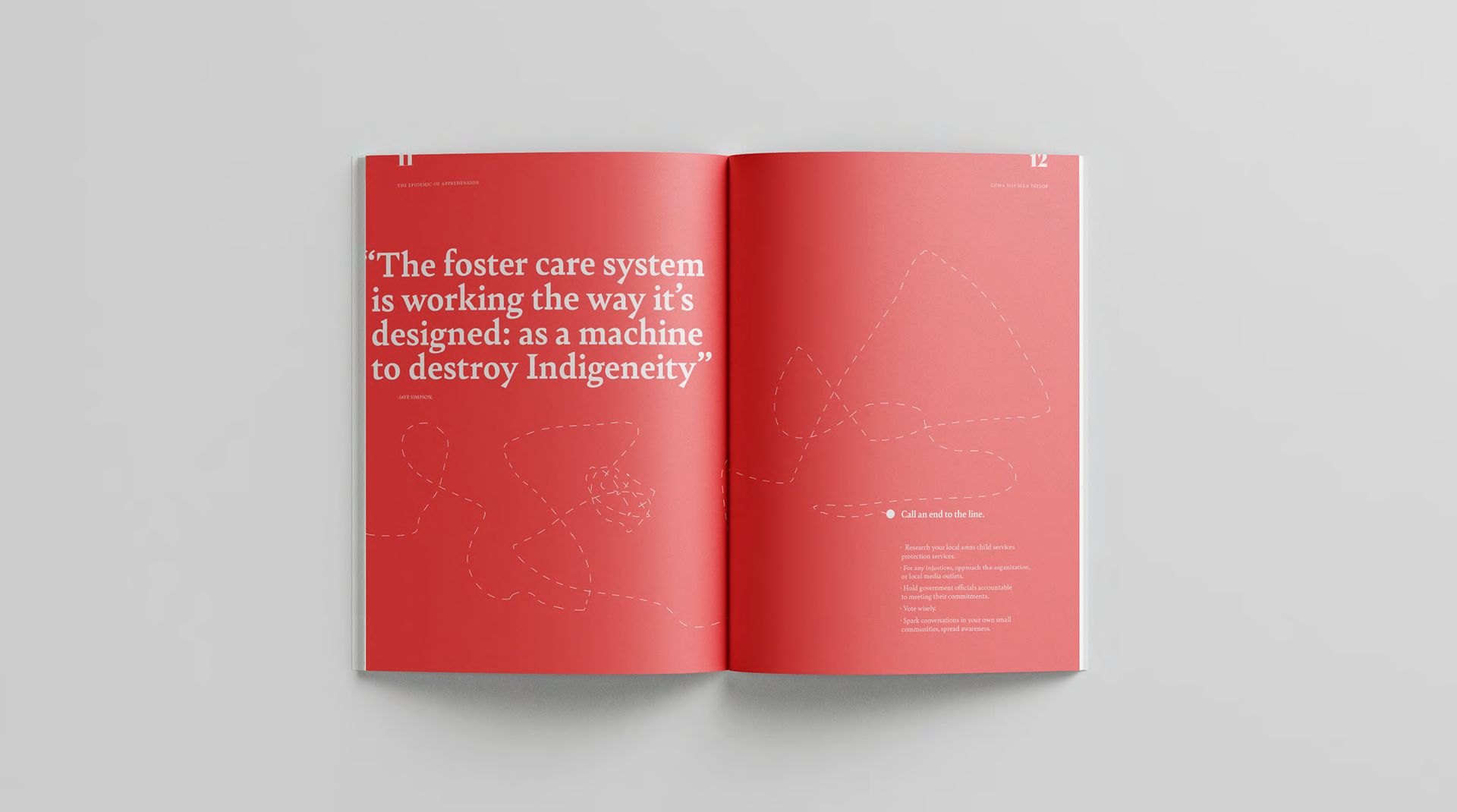
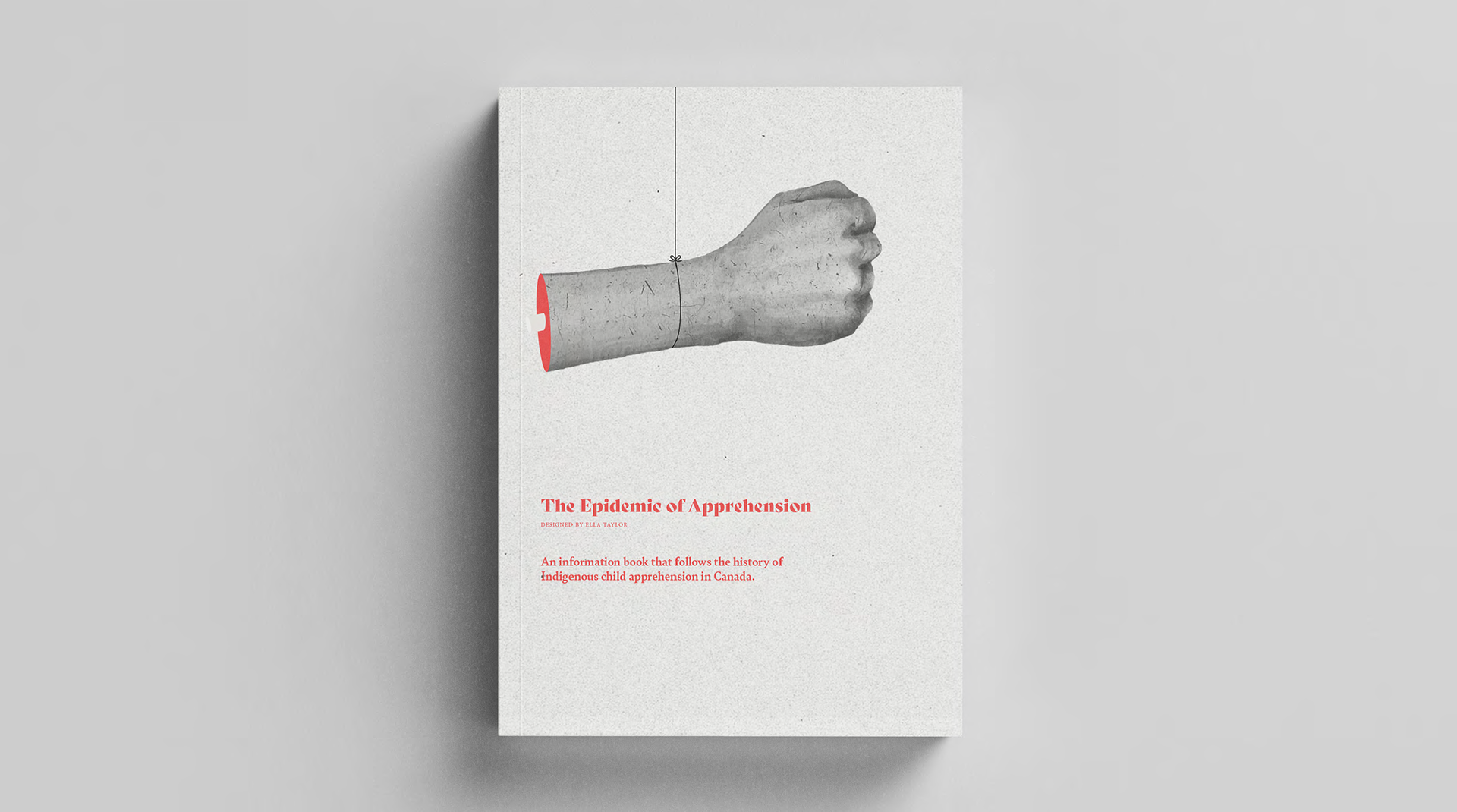
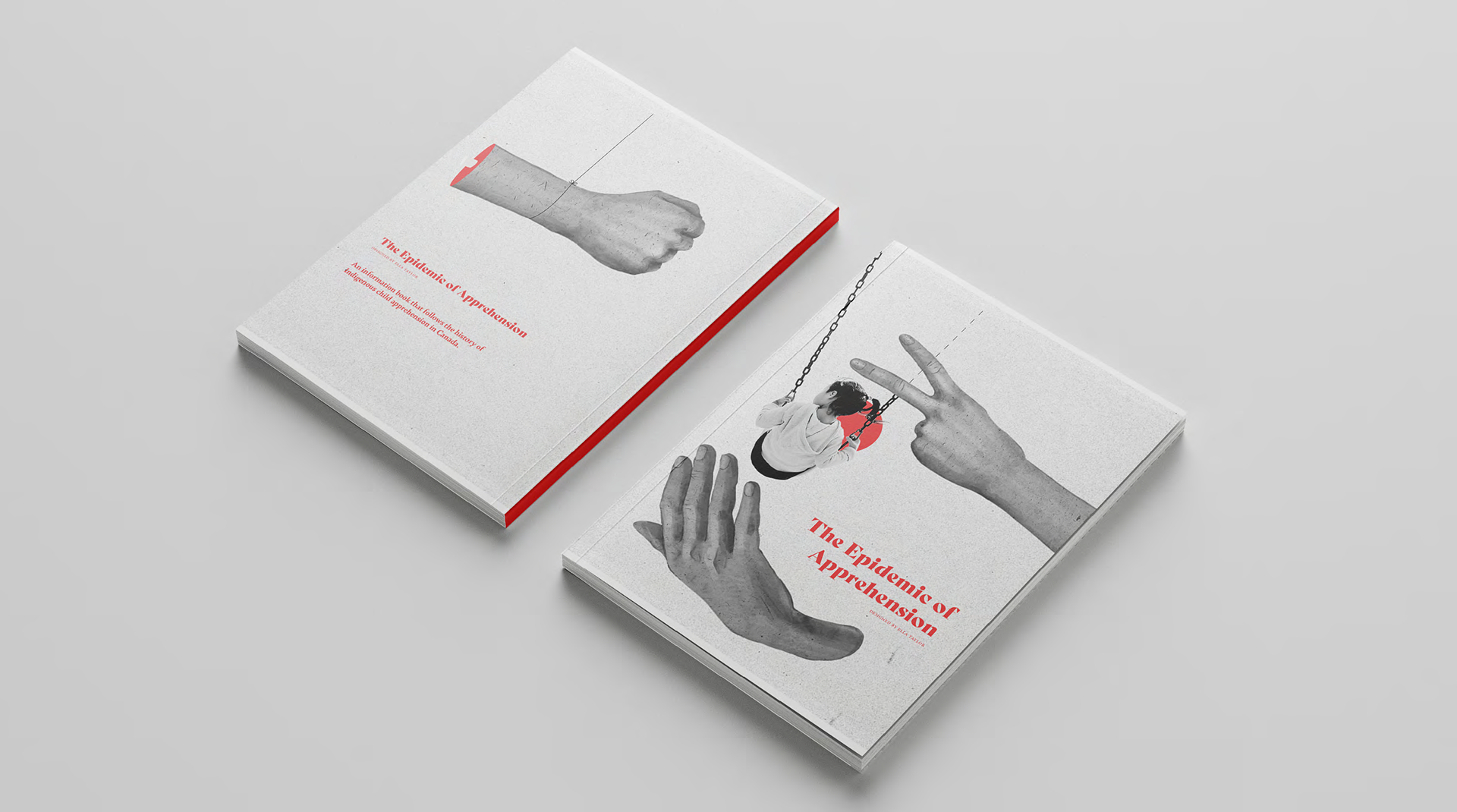
The process behind this project was lengthy and very very messy. I spent the bulk of my time narrowing a focus topic and consuming content related to the subject. Our class was very fortunate to have Mark Rutledge speak as a guest lecture. Mark shared some incredible perspective from personal experiences. He spoke of the power of Indigenous success, and that really impacted some of my design decisions. Portraying Indigenous Peoples as strong and resilient is something that can sometimes get forgotten when addressing such heavy topics. I wanted to be very mindful that as severe as the topic was, presenting ways forward, and holding individual’s resiliency up to the same level of importance as sharing their hardship.
This book may be considered as a reference piece for people who “don’t know where to start”. This information book aims to communicate in a way that provides the viewer with basic facts and actionable steps forward so that they feel there is something they can do, and it’s easier than they thought to make a difference.
RGD Pivot Award for Information Design Recipient 2021